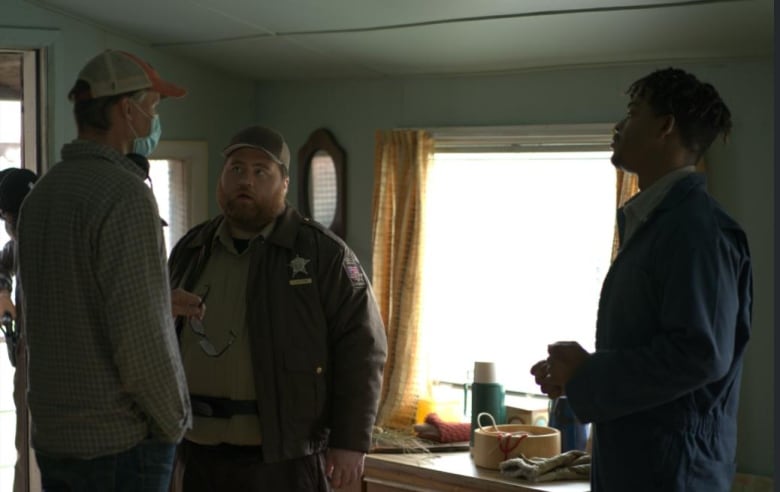HALIFAX – When legal scholar Elaine Craig started researching pornography, she knew little about websites such as Pornhub or xHamster — and she did not anticipate that the harsh scenes she would view would at times force her to step away.
Four years later, the Dalhousie University law professor has published a book that portrays in graphic detail the rise of ubiquitous free porn, concluding it is causing harm to the “sexual integrity” of girls, women and the community at large.
The 386-page volume, titled “Mainstreaming Porn” (McGill-Queen’s University Press), begins by outlining how porn-streaming firms claim to create “safe spaces” for adults to view “consensual, perfectly legal sex,” as their moderators — both automated and human — keep depictions of illegal acts off the sites.
But as the 49-year-old professor worked through the topic, she came to question these claims. Depictions of sex that find their way onto the platforms are far from benign, she says.
“Representations of sex in mainstream porn … that weaponize sex against women and girls, that represent it as a tactic to be deployed against unconscious women or unsuspecting ‘daughters’ when their mothers are not home … do not promote sexual integrity and human flourishing,” she writes in her closing chapter.
Joanna Birenbaum, a Toronto-based lawyer who has worked with sexual assault victims for 20 years, said in a recent email that Craig’s work is the first to “really make the connection between porn, its impact on women and girls … and the ways in which it has evolved to become part of the tech industry.”
“It is eye-opening because it is so frank and concrete … for those who are unaware of what can be found on these mainstream platforms.”
For example, Canadian criminal law is clear that when a person is asleep, they lack the capacity for sexual consent. But Craig’s online searches of porn platforms found “countless videos” depicting the perpetration of sexual assault on “sleeping or unconscious women.” The difference in the pseudo-reality of porn was the women were almost always depicted as pleased and accepting.
Meanwhile, the book finds that “incest-based” porn — and the associated “tags” designed to draw viewers — are “as prolific as they are popular.” Craig said during an interview at her campus office that she believes a subset of this category, showing male family members having sex with female performers depicted as girls, meets the definition of child pornography.
Then there are the depictions of the surreptitious filming of sex without the knowledge of those being recorded, “another relatively common phenomenon on porn-streaming platforms,” she writes. In her closing chapters, she urges all provinces to pass laws to allow rapid removal of such material from sites.
For Craig, a mother of two boys, her journey into this world was draining. After writing the chapter on incest-themed porn, she had to take three months away from the project. “I found it challenging to watch some of it,” she said.
In her book, Craig notes how last year, after a judge sentenced an Ottawa man to seven years in prison for posting secret sex videos, a vice-president with Ethical Capital Partners — which owns Pornhub’s parent Aylo — said the site no longer allows individuals to search for videos under the tag, “hidden camera.”
But when Craig checked she found that, while the term “hidden camera” yielded no videos on Pornhub, using just the term “hidden” did produce results. Titles on the first page of her search results included, “Dragged a sexy classmate into bed and filmed sex on a hidden phone.” Other categories including “secret voyeur,” “real amateur hidden” and “spy” also yielded videos.
A Pornhub spokesman said in an emailed statement this week that the company has a list of more than 35,000 banned keywords and millions of permutations “that prevent users from trying to search for words that may violate our terms of service.” He said the list is “constantly evolving, with new words regularly added in multiple languages.”
In her closing chapters, Craig questions whether using criminal law to go after the producers and possessors of the porn she considers illegal will be effective. Instead she prefers a human rights approach that identifies “hateful” porn and monitors remedies over time.
Her research found that certain graphic slurs directed at women yielded links to hundreds of videos last year on Pornhub, and Craig argues these expressions can be seen as part of a “taxonomy of misogyny and racism” that the sites are building.
She argues for federal legislation to prohibit streaming companies from promoting videos with titles, tags and categories that meet the definition of hate speech — “vilification and detestation on the basis of sex or race, for example.”
The author notes that the Online Harms Act — currently before Parliament — would create a digital safety commission and impose a “duty of responsibility” on porn sites to prevent harmful content toward children. However, Craig calls for the same approach to be applied to “the unique harms” the streaming platforms are creating for women.
Craig argues against an “absolutist” ban on porn, making the case that this is unrealistic, but she calls for a landscape where “sex should not be mean” and where parents and schools start to educate teenagers about the harmful forms of sexuality they may encounter on the free platforms.
“Mainstream porn-streaming platforms should be held more responsible for preventing these harms and for bearing their costs when they fail,” she writes.
This report by The Canadian Press was first published Nov. 13, 2024.






























